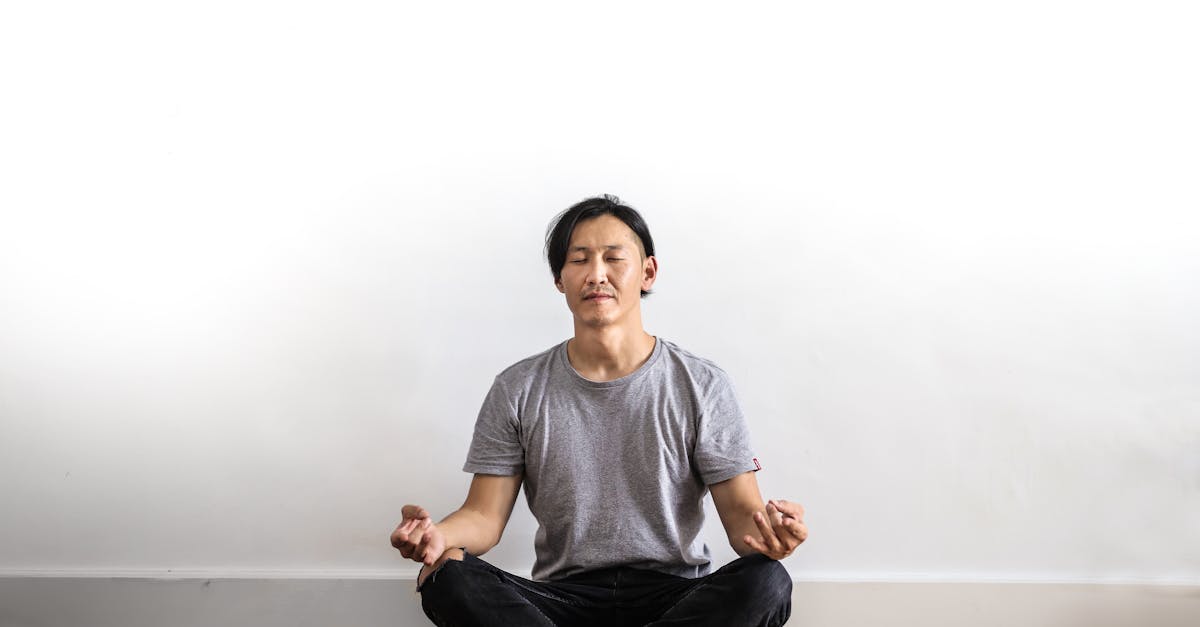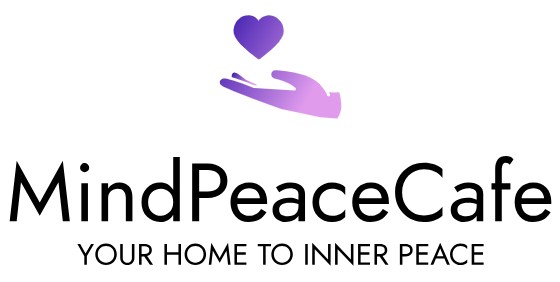Unveiling the Transformative Power of Mindfulness for Children

Embark on Max’s extraordinary journey through the transformative power of mindfulness and Calm Kids Meditation. Delve into a heartwarming tale of growth and resilience as Max discovers the incredible impact of mindfulness on his young life. Join us as we uncover Max’s inspiring story and explore the profound benefits of mindfulness for children, providing a roadmap for parents and educators. Through Max’s experience, we reveal the potential of mindfulness to empower children and nurture their emotional well-being, setting them on a path toward success and fulfillment.
1. Introduction: Max’s Discovery of Mindfulness
Meet Max, a remarkable young individual whose journey into mindfulness has been nothing short of transformative. Max’s introduction to mindfulness stemmed from the challenges he faced as a child, struggling with focus, emotional well-being, and a sense of inner calm. However, everything changed when he discovered the profound impact of Calm Kids Meditation, a tool that became instrumental in shaping his outlook on mindfulness and mental well-being. Through this article, we’ll explore Max’s enlightening journey, highlighting the pivotal role mindfulness played in shaping his life.
Max’s struggles were not uncommon among children. However, his discovery of Calm Kids Meditation acted as a guiding light, illuminating the pathways to mindfulness and emotional balance. This journey had a profound effect, not only on Max’s well-being but also on his overall growth and resilience as a young individual. His story serves as an inspiration for parents, educators, and children alike, emphasizing the positive impact of introducing mindfulness at an early age.
We’ll unravel how Calm Kids Meditation influenced Max’s approach to navigating his challenges and embracing mindfulness. From enhanced focus and academic performance to heightened emotional regulation and resilience, Max’s experience showcases the far-reaching benefits of mindfulness for children, paving the way for a brighter, more balanced future.
Max’s Early Challenges
Calm Kids Meditation: A Transformative Tool
Calm Kids Meditation stands as a beacon of transformation in Max’s journey toward mindfulness and mental well-being. Through this practice, Max found a haven, a sanctuary where his young mind could seek solace and balance. This form of meditation became a nurturing force, guiding Max through the complexities of his early challenges and providing him with the tools to find harmony within himself. Calm Kids Meditation isn’t just about sitting still; it’s a profound system that empowers children like Max to cultivate a deeper understanding of their emotions, thoughts, and the world around them.
At its core, Calm Kids Meditation serves as a pivotal tool, offering children the means to anchor themselves amidst the storms of daily life. It provides a space for self-discovery and introspection, enabling them to embrace mindfulness with open hearts and curious minds. By fostering a sense of tranquility and self-awareness, this transformative practice equips children with invaluable skills that extend far beyond their formative years, laying the groundwork for a lifetime of emotional balance and mental well-being.
The impact of Calm Kids Meditation on Max’s approach to mindfulness and mental well-being has been profound. Through this practice, Max has not only discovered a newfound sense of tranquility but has also honed his ability to navigate life’s challenges with resilience and grace. Discovering this transformative tool has unlocked a world of possibilities for Max, propelling him toward a future filled with self-assurance and emotional strength.
2. Benefits of Mindfulness for Children

Mindfulness offers a diverse array of benefits for children, from sharpening their focus to enhancing their emotional regulation and overall well-being. By engaging in mindfulness practices, children can experience improved concentration and attention, allowing them to navigate their daily activities with greater clarity and purpose. Furthermore, these practices have been found to positively impact academic performance, nurturing a fertile ground for learning and growth.
Emotional regulation, another key benefit of mindfulness, empowers children to cultivate a deeper understanding of their feelings and responses. By honing their emotional intelligence, children can better manage stress, anxiety, and the complexities of their emotional landscape. This not only leads to a more balanced and resilient mindset but also fosters healthier social interactions and relationships with peers.
Overall well-being is at the heart of mindfulness for children. Through these practices, children can develop a profound sense of self-awareness and inner calm, laying the groundwork for a lifetime of mental and emotional balance. By embracing mindfulness, children can embark on a journey of self-discovery, emotional resilience, and personal growth, setting the stage for a vibrant and fulfilling future.
Enhanced Focus and Academic Performance
Mindfulness practices have shown a remarkable correlation with enhanced focus and improved academic performance in children. By engaging in mindfulness activities, children have the opportunity to strengthen their attention and concentration, crucial skills that play a pivotal role in their scholastic endeavors. Studies have indicated that regular mindfulness practices, such as meditation and focused breathing exercises, contribute to heightened cognitive abilities, enabling children to approach their studies with a clearer and more receptive mindset.
Furthermore, mindfulness fosters an environment conducive to learning, as it allows children to cultivate a sense of present-moment awareness, enabling them to engage with their surroundings and academic tasks more effectively. By honing their ability to remain attentive and focused, children can navigate the complexities of their studies with renewed vigor and resilience, paving the way for improved academic success and a deeper understanding of their learning materials.
The positive impact of mindfulness on academic performance extends beyond the classroom, influencing children’s overall approach to learning and their capacity to assimilate new information. By integrating mindfulness practices into their daily routines, children are better equipped to tackle challenges, absorb knowledge, and exhibit academic prowess, setting the stage for a fulfilling and enriching educational journey.
Emotional Regulation and Resilience
Mindfulness empowers children to develop crucial emotional regulation skills, fostering resilience in the face of life’s challenges. Through mindfulness practices, children are provided with valuable tools to navigate their emotions, recognize their feelings, and respond to various situations with a sense of calm and clarity. By integrating mindfulness into their daily routines, children can cultivate a deeper understanding of their emotional landscape, leading to a greater capacity for managing stress and adversity.
Additionally, mindfulness equips children with the ability to embrace change and uncertainty, fostering adaptability and resilience in the face of life’s unpredictable moments. By encouraging present-moment awareness and acceptance, mindfulness practices enable children to approach challenges with a balanced mindset, thereby enhancing their ability to bounce back from setbacks and adversities.
The impact of mindfulness on emotional regulation and resilience is far-reaching, extending beyond individual well-being to encompass healthier social interactions and relationships. As children develop a stronger sense of emotional awareness and control, they are better equipped to engage with their peers, fostering empathy, understanding, and supportive connections. By nurturing emotional regulation and resilience through mindfulness, children are empowered to embark on a path of emotional strength and adaptability, laying a foundation for lifelong well-being and personal growth.
3. Calm Kids Meditation: A Guide for Parents and Educators
Calm Kids Meditation serves as a valuable guide for parents and educators seeking to introduce mindfulness to children, offering profound positive impacts on their well-being. Through the practice of Calm Kids Meditation, children are equipped with essential tools to navigate their emotions, build resilience, and foster a greater sense of inner calm. For parents, integrating mindfulness into their child’s daily routine can begin with simple practices such as guided breathing exercises or short moments of quiet reflection, laying the groundwork for improved emotional regulation and overall well-being.
Educators play a pivotal role in nurturing mindfulness among children, and the integration of Calm Kids Meditation into school curriculums can provide a structured approach to fostering mindfulness in educational settings. By introducing mindfulness practices, educators can create supportive environments that encourage children to embrace mindfulness, promoting emotional balance, and enhancing their ability to focus and engage with their studies. Furthermore, the positive impact of mindfulness on children’s well-being can extend beyond the classroom, influencing their behavior, attitudes, and relationships with peers.
Calm Kids Meditation offers a comprehensive resource for parents and educators, guiding them in creating nurturing environments that support children’s emotional and mental development. By implementing mindfulness into daily routines at home and integrating it into school curriculums, parents and educators can provide children with valuable lifelong skills that foster emotional resilience, empathy, and overall well-being.
Implementing Mindfulness at Home
Incorporating mindfulness practices, particularly through Calm Kids Meditation, into a child’s daily routine at home can offer a myriad of benefits, nurturing their emotional well-being and fostering a greater sense of inner calm. Parents can introduce mindfulness to their children through various simple yet impactful practices. Engaging in mindful breathing exercises, creating quiet moments for reflection, or even practicing gratitude are wonderful ways to initiate mindfulness at home. By incorporating these practices into daily activities, such as bedtime routines or mealtime moments, parents can provide children with valuable tools for understanding their emotions and cultivating a sense of peace within themselves.
Furthermore, establishing a designated space within the home for mindfulness activities can create a supportive environment for children to engage with these practices. This area can serve as a sanctuary where children can explore activities such as gentle yoga, guided meditations, or other calming rituals. Encouraging children to explore and express their emotions in this safe space contributes to their overall well-being and emotional development.
By weaving mindfulness practices into a child’s daily routine, parents can foster a holistic approach to emotional well-being, empowering children to navigate life’s challenges with resilience and grace. Additionally, the integration of mindfulness activities into family rituals and daily life not only benefits the child but also cultivates a sense of emotional connection and well-being within the entire family unit.
Integrating Mindfulness into School Curriculum
Integrating Calm Kids Meditation into the school curriculum can significantly contribute to supporting children’s mental and emotional development. Educators play a crucial role in fostering mindfulness practices in educational settings, providing children with essential tools for emotional regulation, focus, and overall well-being. One effective approach is to incorporate mindful activities as part of the school day, allowing children to engage in moments of quiet reflection, deep breathing exercises, or gentle stretching to encourage a sense of calm and centeredness.
Furthermore, creating dedicated spaces within the school environment where children can engage in mindfulness activities can contribute to a supportive and nurturing atmosphere. Designating areas for meditation, relaxation, or mindfulness exercises offers children an opportunity to explore and develop a deeper understanding of their emotions, ultimately fostering a positive impact on their mental health and emotional resilience.
The inclusion of Calm Kids Meditation in the school curriculum not only provides children with lifelong skills for emotional well-being but also enhances their capacity for focus and academic success. By integrating mindfulness practices into various subjects or classroom activities, educators can offer children a holistic approach to learning, promoting emotional balance and cultivating an environment where children feel supported, understood, and equipped with essential tools for navigating the complexities of their emotional and mental landscape.
4. Max’s Success Story: Nurturing Mindful Growth
Max’s journey with Calm Kids Meditation stands as a testament to the profound impact of mindfulness on a young individual’s development. Through his engagement with mindfulness practices, Max not only discovered a sense of tranquility but also honed his ability to navigate life’s challenges with resilience and grace. Calm Kids Meditation became a guiding force, nurturing Max’s emotional well-being and empowering him to cultivate a deeper understanding of his thoughts and emotions. Max’s success story showcases the transformative power of mindfulness, highlighting its ability to foster emotional resilience and personal growth in children.
The lasting impact of Calm Kids Meditation on Max’s overall well-being is evident in his approach to life—a testament to the enduring benefits of mindfulness. By harnessing the tools provided through mindfulness practices, Max has found the strength to overcome obstacles, embrace change, and cultivate a profound sense of self-awareness. His journey stands as an inspiration to children and parents alike, emphasizing the potential for mindfulness to shape a more balanced and emotionally resilient future.
Max’s success story serves as a beacon of hope, illustrating the far-reaching effects of mindfulness on a child’s well-being and personal growth. Through Calm Kids Meditation, Max has discovered a path toward emotional strength, self-assurance, and a vibrant, fulfilling future, reflecting the boundless potential of mindfulness to nurture mindful growth in children.
Empowerment Through Mindfulness
Max’s journey with Calm Kids Meditation is a powerful testament to the uplifting impact of mindfulness on a child’s life. Through mindfulness practices, Max discovered a newfound sense of resilience and inner strength that enabled him to confront and overcome a range of challenges. By engaging with Calm Kids Meditation, Max developed essential skills for emotional regulation, focus, and self-awareness, providing him with a toolkit for navigating life’s complexities with grace and confidence.
Calm Kids Meditation empowered Max to embrace change and uncertainty with a calm and balanced mindset. By incorporating mindfulness into his daily routine, Max cultivated a profound awareness of his thoughts and emotions, giving him the ability to respond to various situations with clarity and poise. This newfound empowerment resulted in a positive transformation, propelling Max toward a path of personal growth and emotional well-being.
Max’s journey serves as an inspiring example of how mindfulness can nurture inner resilience and empower children to face life’s challenges with courage and determination. Through his story, we witness the uplifting potential of mindfulness to instill a sense of empowerment, enabling children like Max to bloom into mindful, resilient individuals, equipped with the tools to flourish in all aspects of their lives.
Max’s Message to Fellow Children
In a warm and encouraging message to fellow children, Max shares his inspiring journey with mindfulness, urging others to embrace its positive effects. With heartfelt sincerity, Max emphasizes the transformative impact of mindfulness on his own life, highlighting the sense of inner calm and resilience it has afforded him. He reassures other children that through mindfulness, they can navigate life’s ups and downs with greater ease and self-assurance, fostering a deeper understanding of their emotions and thoughts.
Max’s uplifting words convey a sense of empowerment, as he encourages fellow children to embark on their own mindful journeys. He shares the liberating feeling of being able to approach challenges with a clearer mindset and a more centered heart, a sentiment he hopes others will experience through their own engagement with mindfulness practices. Max’s message serves as an invitation to embrace mindfulness as a source of comfort, strength, and personal growth, creating a ripple effect of positivity and well-being among young individuals.
Through his message, Max extends a hand of camaraderie, reminding fellow children that they are not alone in their journeys. He fosters a spirit of togetherness, encouraging mindfulness as a pathway to building emotional resilience, nurturing self-compassion, and embracing a brighter, more balanced future for all who partake in its transformative embrace.
How can parents introduce mindfulness to young children?
Parents can introduce mindfulness to young children through various simple practices. Examples include guided breathing exercises, short moments of quiet reflection, or storytelling that emphasizes the importance of being present. Creating a calming atmosphere at home and participating in mindfulness activities together can also be beneficial for both the child and the parent.
What are some practical ways educators can integrate mindfulness into the school curriculum?
Educators can integrate mindfulness into the school curriculum by incorporating short mindfulness exercises at the beginning or end of lessons, creating designated spaces for quiet reflection, and introducing mindfulness-related themes into various subjects. Additionally, organizing mindful activities such as deep breathing exercises or mindful walks can provide students with opportunities to engage in mindfulness as part of their regular school day.
Can mindfulness help children with emotional regulation and resilience?
Yes, mindfulness can significantly support children in developing emotional regulation and resilience. By engaging in mindfulness practices, children can learn to recognize and understand their feelings, manage stress and anxiety, and build greater emotional resilience. Mindfulness also fosters a sense of self-awareness and present-moment focus, equipping children with essential tools for navigating life’s challenges.




